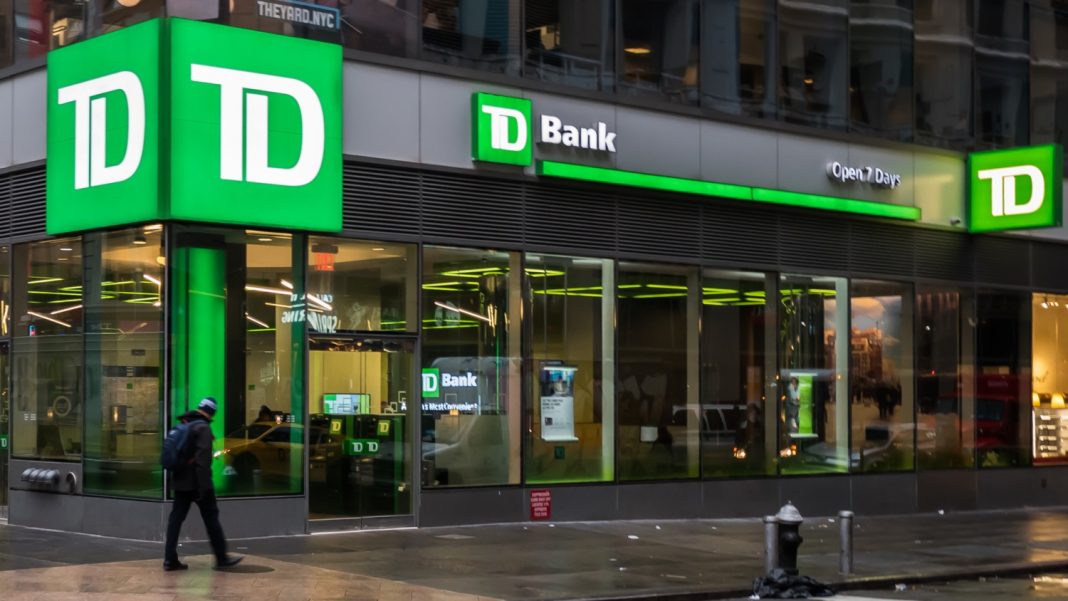NEW YORK, USA—U.S. regulators announced on Thursday, October 10, 2024, that TD Bank has agreed to pay a staggering $3 billion to settle charges of failing to adequately monitor money laundering by drug cartels.
The settlement includes a record $1.3 billion penalty paid to the Treasury Department’s Financial Crimes Enforcement Network (FinCEN), along with $1.8 billion to the U.S. Department of Justice (DoJ) as part of a guilty plea for violating the Bank Secrecy Act.
The charges against the Canadian bank, which has significant operations in the United States, stem from what regulators called “long-term, pervasive, and systemic deficiencies” in the bank’s anti-money laundering (AML) procedures.
These failures allowed drug cartels to launder over $670 million through TD Bank accounts between January 2018 and April 2024, according to legal filings.
“By making its services convenient for criminals, it became one,” Attorney General Merrick Garland said during a press conference on Thursday.
Massive Regulatory Failures
More than 90 percent of transactions at TD Bank went unmonitored during the six-year period under investigation, a lapse that allowed three major money laundering networks to exploit the bank’s weak oversight.
In one instance, bank employees accepted over $57,000 in gift cards to process suspicious transactions totaling more than $470 million in cash deposits, according to the DoJ.
“This is a difficult chapter in our bank’s history,” said TD Bank CEO Bharat Masrani in a statement. “These failures took place on my watch as CEO, and I apologize to all our stakeholders.”
TD Bank said it has taken steps to address the failures, including hiring over 700 specialists in money laundering prevention and financial crime, and implementing new processes to prevent future abuses.
However, the bank will face four years of government monitoring to ensure compliance with AML regulations.
Government Reaction and Criticism
The unprecedented fine highlights the U.S. government’s increasing focus on cracking down on money laundering tied to drug cartels, particularly those involved in the trafficking of fentanyl, a deadly opioid responsible for tens of thousands of American deaths annually.
Treasury officials have grown concerned about cartels’ increasing use of the U.S. financial system to launder proceeds from illegal drug sales.
“Time and again, unlike its peers, TD Bank prioritized growth and profit over complying with the law,” said Deputy Treasury Secretary Wally Adeyemo.
“The bank enabled drug trafficking, and these systemic failures created actual harm to American citizens.”
Despite the hefty penalties, some critics argue that the punishment does not go far enough. Senator Elizabeth Warren (D-MA), a vocal advocate for stricter financial regulation, condemned the settlement.
“Big banks treat government fines as the cost of doing business,” Warren said. “This settlement lets bad bank executives off the hook for allowing TD Bank to be used as a criminal slush fund.”
Impact on TD Bank
The fines have dealt a major blow to TD Bank’s U.S. operations, causing its shares to drop 6 percent on Thursday as investors brace for weaker growth and higher legal expenses.
TD will take a one-time charge of $1.5 billion after taxes to cover the fines and plans to reduce 10 percent of its assets.
The Office of the Comptroller of the Currency (OCC) has also imposed growth restrictions on TD Bank in the United States.
The bank will now be forced to relocate its anti-money laundering compliance office to the U.S., marking another significant operational shift.
The growth restriction imposed by the OCC mirrors similar penalties levied against Wells Fargo in 2018, following widespread consumer abuses at that bank.
Wells Fargo’s asset cap has yet to be lifted, serving as a stark reminder of the long-term consequences that can result from such sanctions.
TD Bank, which previously settled a $1.2 billion lawsuit over its involvement in disgraced financier Allen Stanford’s Ponzi scheme, has now faced two high-profile financial scandals in recent years.
In both cases, the bank denied wrongdoing but faced significant penalties.
As TD works to rebuild its reputation, it remains to be seen how its long-term growth in the U.S. will be affected by this settlement and its lingering regulatory challenges.







